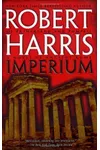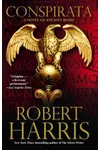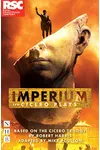Step into the scandal-soaked streets of ancient Rome with Robert Harris’s Cicero trilogy, a dazzling blend of historical fiction and political intrigue that brings the Roman Republic’s final days to vivid life. Through the eyes of Tiro, the loyal secretary to Rome’s greatest orator, Marcus Tullius Cicero, this series sweeps readers into a world of cunning speeches, backstabbing senators, and the raw ambition that shaped an empire. If you love a good mix of brainy drama and historical grit, Cicero is your ticket to a wild Roman ride!
Harris, a master of weaving fact with fiction, crafts a narrative that feels like a front-row seat to history. With its sharp dialogue and richly detailed setting, the trilogy captures Cicero’s meteoric rise, his perilous time at Rome’s political peak, and his tragic fall, all while exploring timeless questions about power and morality.
How Cicero Began
Robert Harris, a former journalist with a knack for historical thrillers, turned his gaze to ancient Rome after his 2003 novel Pompeii ignited his fascination with the era. Inspired by Cicero’s real-life writings—speeches, letters, and philosophical works—Harris saw a chance to resurrect this complex figure. Narrated by Tiro, Cicero’s real-life secretary who invented shorthand, the trilogy began with Imperium in 2006, followed by Lustrum (or Conspirata in the U.S.) in 2009, and concluded with Dictator in 2015. Harris aimed to stay true to historical sources while spinning a gripping tale, a balance that makes the series both educational and unputdownable.
The Heart of Cicero
The trilogy kicks off with Imperium, where young Cicero, a scrappy lawyer from the provinces, takes on a corrupt governor in a high-stakes trial, catapulting him toward Rome’s elite. Lustrum sees Cicero as consul in 63 BC, navigating a web of conspiracies, including the infamous Catiline plot, as rivals like Julius Caesar loom large. Dictator chronicles Cicero’s final years, from exile to a fleeting comeback, culminating in his dramatic death as the Republic crumbles.
Harris’s Rome is a bustling, treacherous world where togas hide daggers and eloquence can be a weapon. Themes of ambition, loyalty, and the fragility of democracy run deep, with Cicero portrayed as brilliant yet flawed—cunning but vain, humane yet prone to missteps. The series’ strength lies in its vivid characters, from the pompous Pompey to the sly Caesar, and its ability to draw parallels to modern politics, making ancient history feel eerily relevant.
Tiro’s narrative voice adds intimacy, offering a slave’s perspective on Rome’s elite while grounding the epic scope in personal stakes. Harris’s prose is elegant yet accessible, painting daily Roman life—seedy Subura slums, grand Forum debates—with cinematic detail.
Why Cicero Resonates
The Cicero trilogy has earned acclaim for its meticulous research and storytelling, appealing to history buffs and thriller fans alike. Its exploration of power’s corrupting allure and the collapse of democratic norms strikes a chord in today’s polarized world, offering a cautionary tale wrapped in page-turning drama. Adapted into a 2017 Royal Shakespeare Company play, the series has cemented Harris’s reputation as a titan of historical fiction, with fans praising its depth and emotional pull.
Readers on platforms like Goodreads call it “a historical Game of Thrones,” hooked by its intricate plots and larger-than-life figures. For anyone curious about Rome or the art of politics, Cicero delivers a masterclass in both.
- About Cicero
- Number of books: 3
- Publication years: 2006, 2009, 2015
- Narrator: Tiro, Cicero’s secretary
- Setting: Roman Republic, 79–43 BC
Ready to trade modern politics for some toga-clad drama? Grab Imperium and dive into Cicero’s thrilling world of wit, betrayal, and Roman glory!



